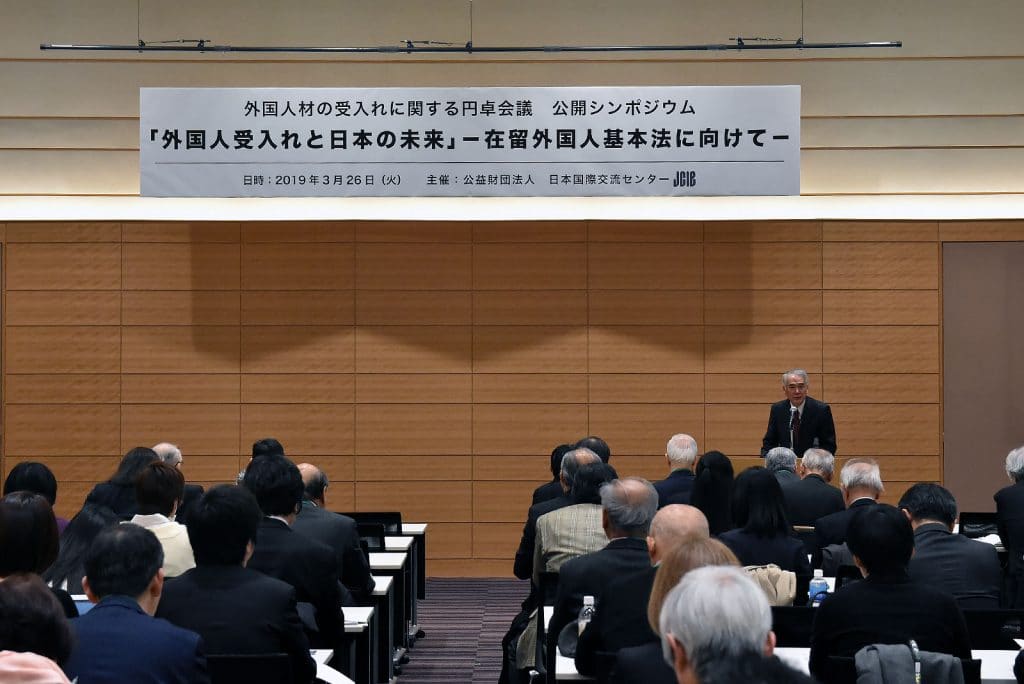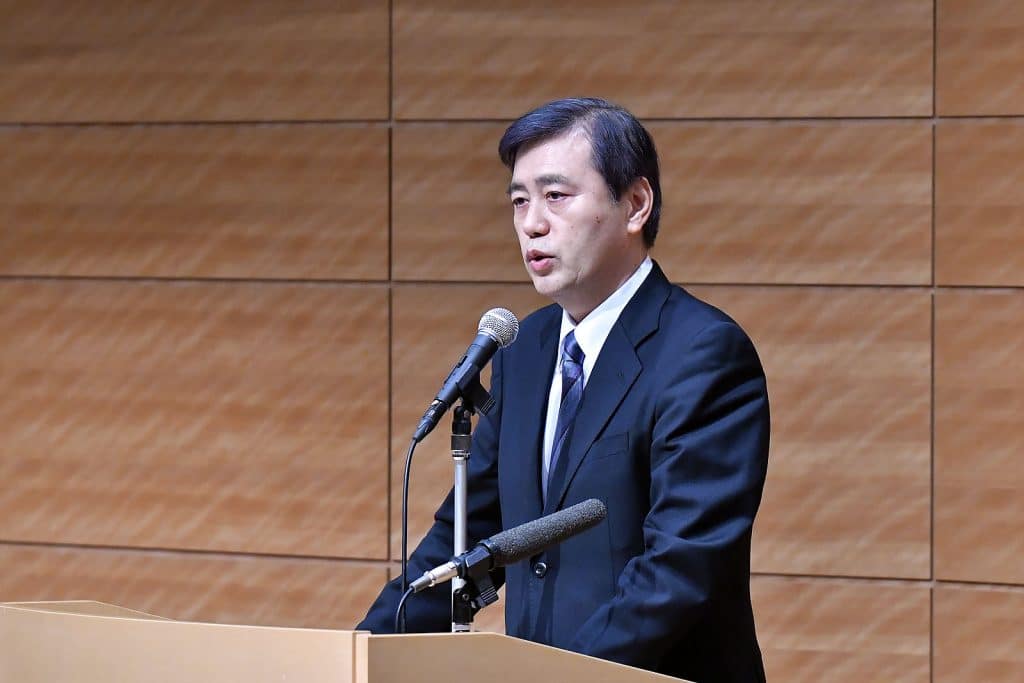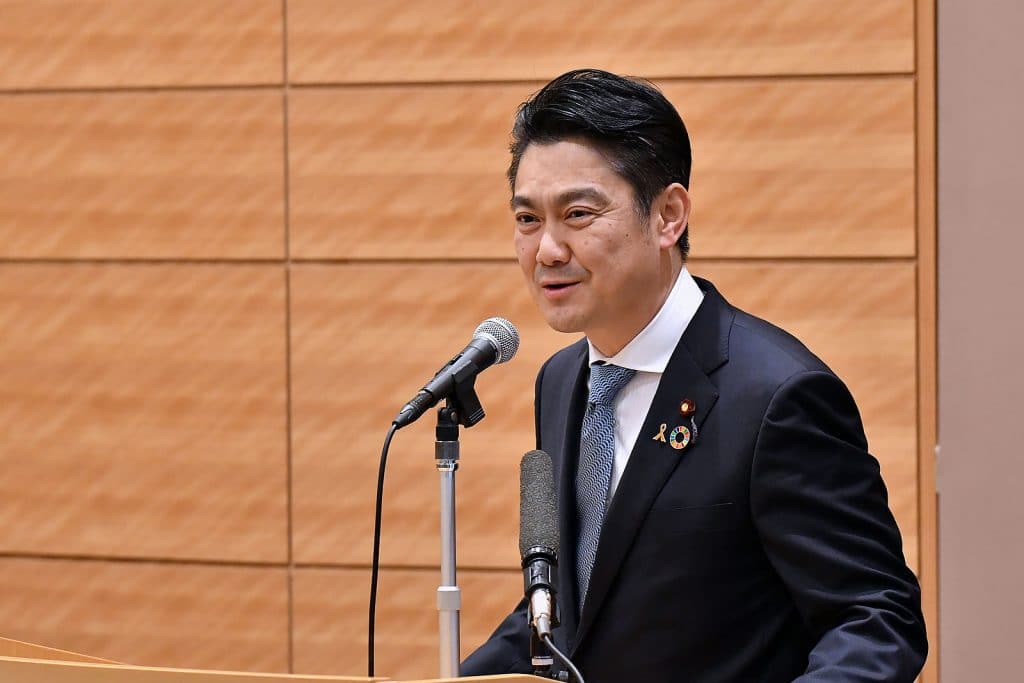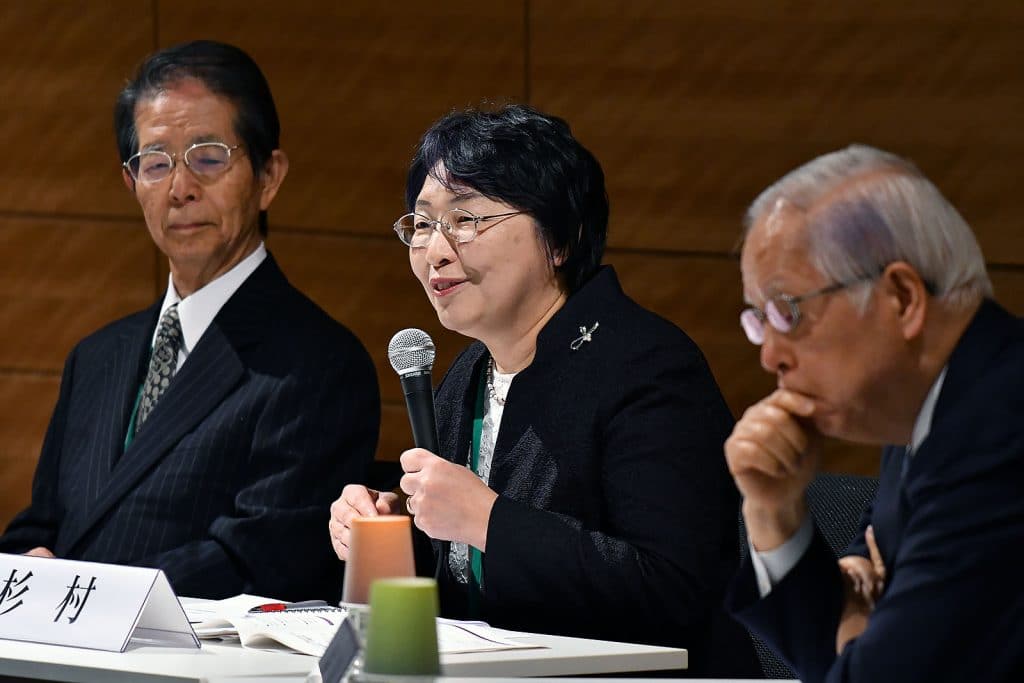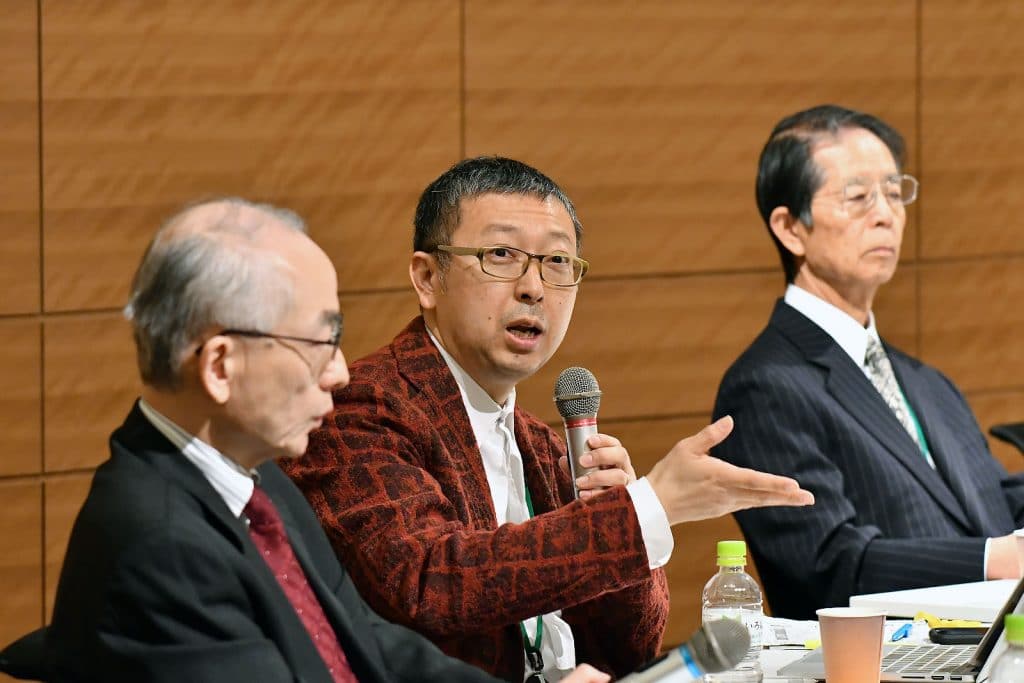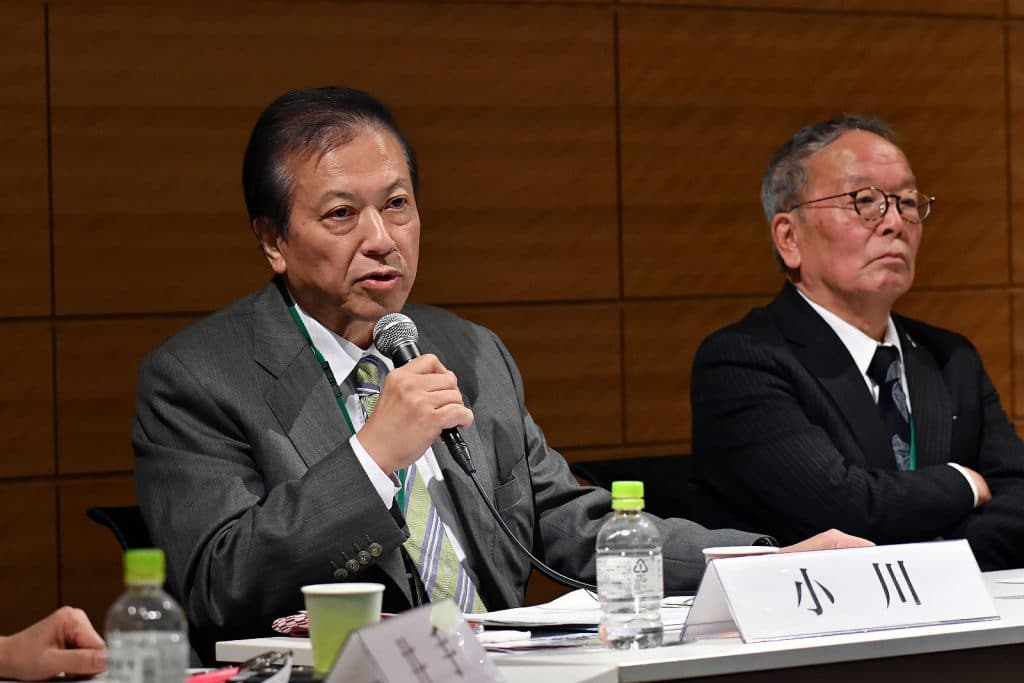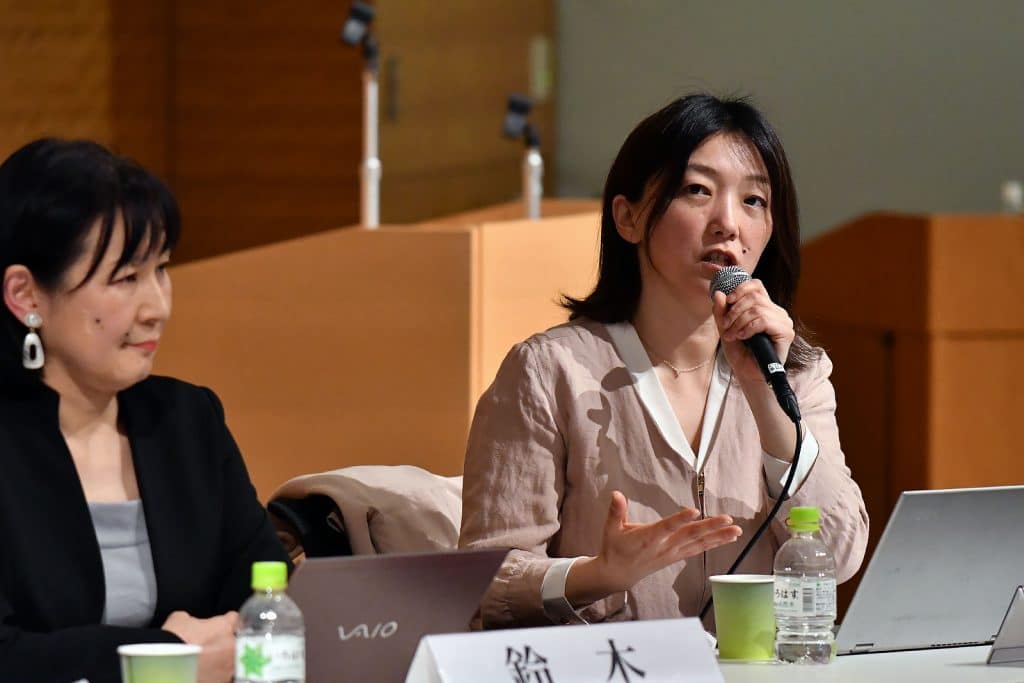As part of JCIE’s Roundtable on Japan’s Migration Policy series, a major symposium was convened to examine the question of “Accepting Foreigners and Japan’s Future—Toward a Basic Law on Foreigners Residing in Japan.” The event, which was held at the 1st Members’ Office Building of the House of Representatives, drew roughly 200 people from government, business, nonprofit organizations, media, academic and research organizations, and the foreign community in Japan.
At the symposium, the Roundtable’s two proposals that they developed in FY2018, “The Future Vision for Japan Created with Foreigners” and “Draft Basic Law on Foreigners Residing in Japan,” were shared, and members of the Roundtable served as panelists to discuss how foreigners could be welcomed and retained, with a focus on companies and local communities.
JCIE’s Toshihiro Menju, director of the Roundtable, introduced the work of the group and the proposals they have produced, including the “Creating a Vision of Japan’s Future together with Foreigners” and a “Draft Outline of the Basic Law on Foreigners Residing in Japan.” He stressed that the absence of clear policies over the past 30 years as the number of foreigners in Japan has continued to rise has led to a number of potential problems that must be addressed. Moreover, as countries throughout Asia are experiencing both economic growth and aging, Japan must create a competitive system to accept immigrants into Japan and the infrastructure to allow them to remain in Japan. To do so, foreigners must be viewed as members of Japanese society and the government and other institutions must step up to make that happen.
Minister of Justice Takashi Yamashita then offered a speech in which he noted that the new policy of the government was a major policy change from the past, and that the government was working hard to become a country to which foreigners would choose to come. He praised the activities and discussions of the Roundtable for promoting discussions on accepting foreigners and encouraged their continued efforts.
The panel discussions that followed focused on the issue through the perspectives of “companies” and “communities.” There was a common sentiment among many panelists that the compensation, educational environment, government services, and other aspects of life in Japan were not appealing to foreign students, skilled workers, and other foreigners. As other countries in Asia undertake various initiatives to attract people to their shores, speakers pointed to a need for improvements to public and private sector policies and to HR/management practices in order to attract talented people in diverse sectors to come to Japan. The panel on communities pointed out that smaller cities and other communities that are being impacted by Japan’s shrinking population are increasingly aware that they need foreigners to help sustain their local economies and socieities. For that reason, it is important to create a vision of local communities that engages national and local government, businesses, local residents, and the society as a whole to ensure equal access to education for children with foreign roots, provide stable employment opportunities for foreigners, and ensure that local governments treat foreign residents without bias.
In conclusion, Takaji Kunimatsu, chair of the Roundtable and of the Outlook Foundation, thanked the audience for the stimulating discussion, promising to incorporate the many important points raised into future discussions among the Roundtable members. Given that there was very little public discussion on immigration policy in the past in Japan, he looked forward to continuing the Roundtable’s valuable contributions to promoting understanding and debate on this issue.
